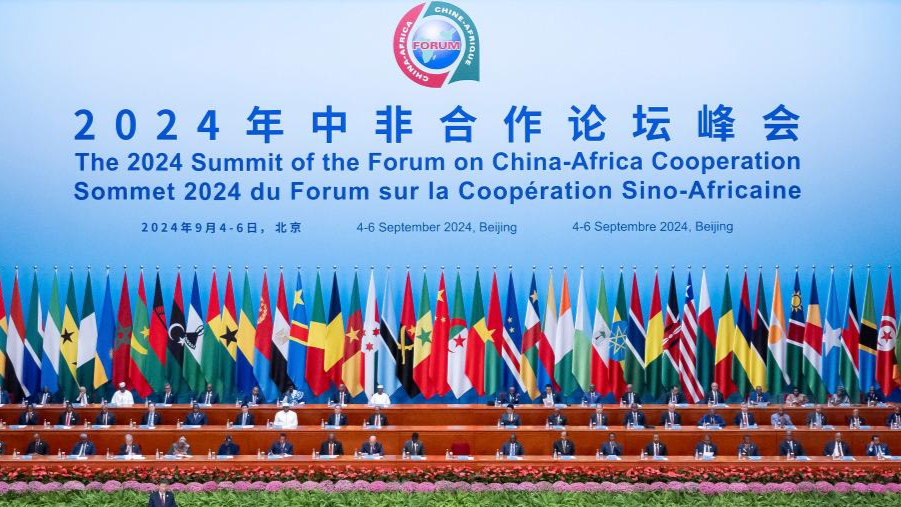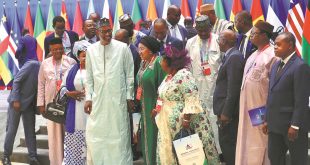Platform bridges gap between Global South, major economies after 20 years
By EDITH MUTETHYA
Published: September 17,2024

As the dust settles after the 2024 Summit of the Forum on China-Africa Cooperation, university scholars have hailed the platform for its transformative role in economic, political, and social development over the last two decades.
In a seminar held on Friday in Kenya’s capital Nairobi, co-organized by the Department of Diplomacy and International Studies at the University of Nairobi and the Africa Center for the Study of China, scholars said the platform has helped bridge the gap between the Global South and the major world economies.
Jack Odhiambo, the dean of the Faculty of Arts and Social Sciences at the University of Nairobi, said the tangible results of the partnership are visible across Africa, ranging from the roads, bridges, healthcare and education projects, to the capacity-building programs.
He lauded the FOCAC emphasis on people-to-people ties and educational exchanges, noting that the significance of education, research, and cultural diplomacy in fostering stronger ties between China and Africa cannot be overstated.
Through scholarships, training programs, research collaborations and cultural exchanges, he said thousands of African students and professionals have benefited from opportunities to study in China, and vice versa.
“These exchanges have enriched not only the lives of individuals but also strengthened our shared intellectual capital and cultural understanding,” he said.
“As we move forward, let us keep in mind that the strength of our partnership lies not only in the infrastructure we build or the trade we conduct but also in the education and people-to-people relationships we foster and the shared knowledge we generate.”
Patrick Maluki, the chairman of the Department of Diplomacy and International Studies at the University of Nairobi, said programs such as the Confucius Institutes, have facilitated greater mutual understanding and collaboration.
“These programs have not only enhanced language and cultural education but have also strengthened academic and professional networks between our regions,” he said.
Maluki said the commitments on people-to-people exchanges made during the 2024 FOCAC summit, which was held from Sept 4-6 in Beijing, underscore the importance of academic collaboration and research partnerships.
“These initiatives are critical as they enable us to leverage academic expertise to address pressing global issues such as climate change, public health and technological advancement,” he said.
“The integration of the elements into our academic discourse enriches our understanding and contributes to the practical implementation of FOCAC’s objectives.”
Technological changes
Maluki said the evolving global landscape, characterized by rapid technological changes and shifting economic dynamics, necessitates a renewed focus on innovation, inclusivity and sustainability.
“It’s the role of the academic institutions to provide critical analysis, generate new knowledge, and propose innovative solutions that can support and enhance the goals of FOCAC,” he said.
Margaret Hutchinson, the vice-chancellor of the University of Nairobi, said China-Africa partnerships under the FOCAC framework have created a new model for international cooperation — one built on mutual respect, win-win outcomes and shared development goals.
“China has emerged as Africa’s largest trading partner, while African countries have found a reliable partner in China for sustainable development,” she said.
Hutchinson said the future of Sino-African relations under FOCAC is full of promise, noting that the commitments made at the recent summit, particularly in areas such as green development, digital economy, industrial cooperation and health, provide a blueprint for deeper and more strategic engagement.
Zhang Zhizhong, charge d’affaires of the Chinese embassy in Kenya, said many other countries have turned their attention to Africa, following the establishment of FOCAC in 2000.
“I’m proud and confident to say that China and Africa have developed the most successful model of cooperation for Global South, featuring its own valuable characteristics,” he said.
Since the establishment of FOCAC, he said, China has helped Africa to build and upgrade almost 100,000 kilometers of roads, more than 10,000 kilometers of railways, nearly 1,000 bridges and almost 100 ports.
Zhang added that Chinese companies have created more than 1.1 million jobs in Africa in the past three years.
He said China is ready to work with Africa to build a platform for governance experience sharing, a China-Africa knowledge network for development and 25 centers on China and Africa studies.
Chinadaily
 Africa -China Review Africa -China Cooperation and Transformation
Africa -China Review Africa -China Cooperation and Transformation
